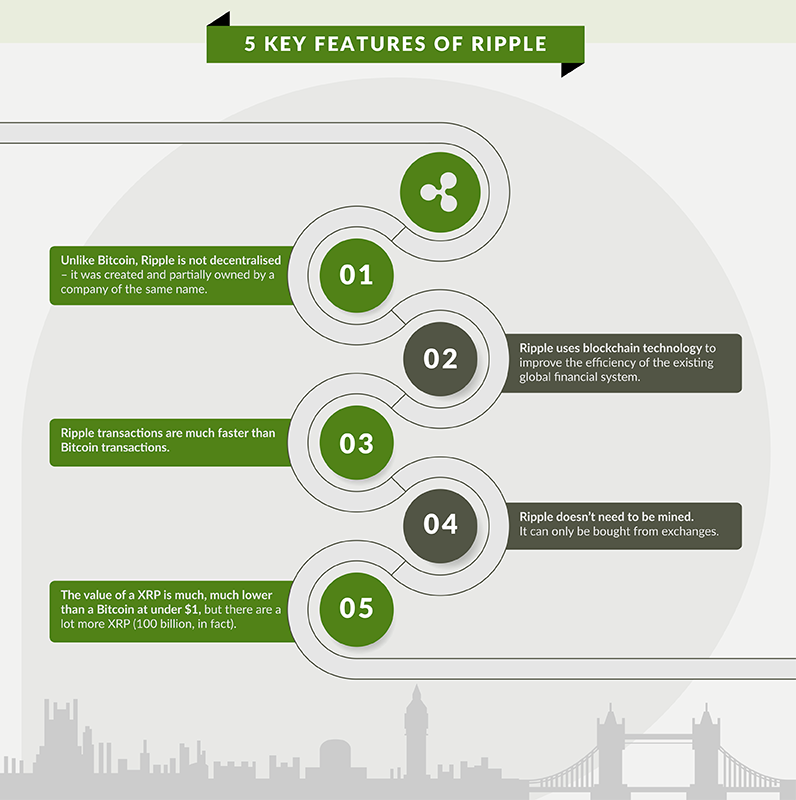Search Knowledge Base Articles
Ripple explained
Launched in 2012, Ripple is a cryptocurrency that tears up many of the rules that define cryptocurrencies. In fact, some would argue that it’s not a true ‘cryptocurrency’ at all.
So, what is Ripple – and why does it matter?
What is Ripple?
Bitcoin was designed to launch alternative systems of currency and payment processing. It proliferates through mining and it’s completely independent from centralised institutions.
Ripple is different.
Created by a computer software company of the same name, Ripple works as a decentralised payment network – but one that largely works to enhance traditional financial systems.
Its cryptocurrency unit is called ‘XRP’, but the cryptocurrency is just a means to an end to bring speed, transparency and security to conventional financial processes. You will find no lofty talk of ‘reinventing money’ here.
Consequently, it’s received some criticism from decentralisation diehards, who call it a ‘fake cryptocurrency’ – amongst other, more profane things.
Around 100 billion XRP were created at Ripple’s inception, 60% of which are still owned by the company. Every time a transaction occurs, a few of these are destroyed. It can’t be mined either, so the only way to obtain it is through a cryptocurrency exchange.
Why does it matter?
Ripple’s earned a reputation as one of the best ‘altcoins’ available - and for good reason. At under $1 per unit it’s worth a lot less than Bitcoin, but there’s much, much more of it (100 billion to Bitcoin’s 21 million).
What’s more, it’s a lot faster than Bitcoin. A transaction on the Ripple network will take several seconds, but a transaction on the Bitcoin network will take several minutes.
This speed has made it attractive to banks and financial institutions, who have been actively (if gingerly) exploring the benefits of blockchain technology for some time.
But don’t worry! Individuals can buy it from any exchange that offers it, so you don’t have to be HSBC or Morgan Stanley to benefit.
The future of Ripple
What lies in store for Ripple?
Well, in terms of cryptocurrencies, it’s comfortably within the top five worldwide – behind Bitcoin, Ethereum and Bitcoin Cash, but ahead of Litecoin. In terms of its ambition to transform financial systems, its full impact is yet to be felt.

Did you find this article useful?
Related Articles
-
Digital Currency Terminologies
ACH - ACH payments are electronic payments made from one bank to another through the Automated Clearing House network. Many people already use ACH pay...
-
Cryptocurrency explained
A cryptocurrency is a form of digital money. While a traditional currency is recognised by the law of the country that issues it - this is known as le...
-
Blockchain explained
Cryptocurrencies are getting a lot of attention, but there’s just as much buzz around blockchain. There’s a very good reason for this -...
-
Bitcoin explained
Bitcoin, the world’s first cryptocurrency, is something of a trailblazer. Some would argue that Bitcoin has the potential to completely change t...
-
Ethereum explained
Ethereum isn’t a cryptocurrency – it’s the name of the network that is powered by Ether (ETH), which is itself the world’s sec...